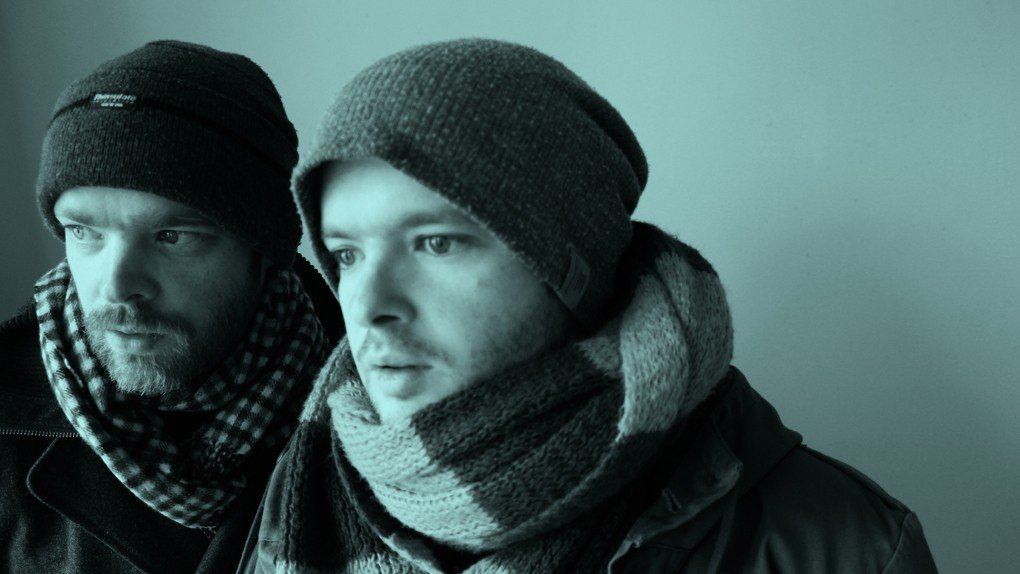
Thomas and Alex White return with their 5th album as The Electric Soft Parade, Stages deals with the passing of Thomas and Alex’s mother. These 7 expansive tracks transcend their roots in grief, reaching through love, loss, mourning and hope, with the ambitious pallet of The Electric Soft Parade. Mark Millar caught up with Thomas White to find out more about this wonderful album.
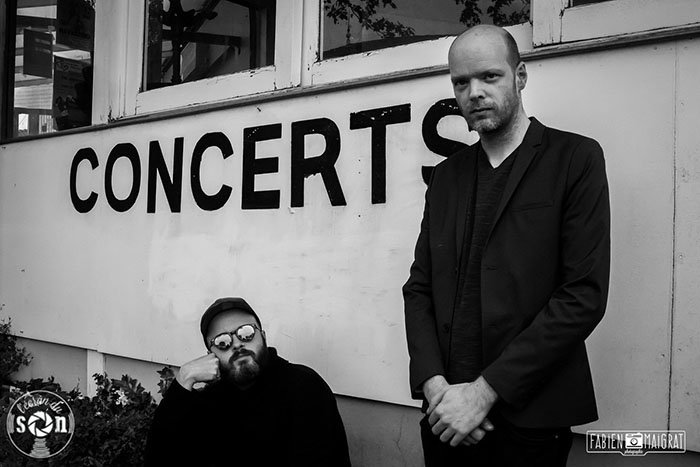
What was the catalyst that made you and Alex decide to form The Electric Soft Parade?
Right back in the day, we both studied music classically when we were kids – we learned piano and violin when we were both under 10. I guess when I was about 8 or 10, I started learning guitar and then taught myself drums and stuff. We just started picking different instruments up, and when I was 12, I got a four-track – like a little home recording console. At that point, me and Al were both writing songs. It was a natural progression, there was never any grand plan. I don’t think we ever really saw ourselves as a band, or singers or guitarists or songwriters. We never saw ourselves as a particular thing – our music naturally took the shape of a band. As we grew up, when we reached the age of 13 or 14, we started forming bands at school and took that out into venues around town.
Then we started getting offers to do live radio sessions and things like that. There was never any grand plan or sense of how we wanted our career to look. It was more like working on music was the most exciting thing – it was always about the love of writing and recording, or playing and collaborating. We certainly were never particularly interested in money, it was still about the love of writing and being fans of music ourselves – that was always a massive part of it. We saw ourselves as part of a lineage of those sorts of groups where the craft is the focus. Bands like Teenage Fan Club and The Beatles are a good example.
Did you and Alex share similar taste in music?
To a certain degree, I know he has much more of an interest in soul music, Jazz and R&B, Hip Hop and the American side of stuff. But then likewise I’m a big Robert Wyatt and Nina Simone fan. Where we differ, I think, is I have a lifelong obsession with the American indie scene. I listen to artists like Guided By Voices, Sleater Kinney and Royal Trucks – the kind of stuff from the 90s that spilt over into the new Millennium. Al was never quite as into that as I was. There is a lot of overlap, and there is some music where he is an uber-fan, which I can take or leave – something like Steely Dan which Al is a completist. He has endless Donald Fagen Solo albums and stuff, and has heard the entire back catalogue and knows it inside out, whereas I can quite happily dip in and out.
The Electric Soft Parade hit the ground running with debut album Holes in the Wall released in February 2002, to wide critical acclaim. A Mercury Music Prize nomination and the band won the Q Award for Best New Act. How did it feel to achieve such success on your debut release?
I think to a certain degree it didn’t feel deserved because I think we were so young. It didn’t feel real, and we didn’t take it particularly seriously at the time. I think if you get that sort of thing after 20 years of work, It feels much more deserved and real, but to get it after two years, to a certain degree it didn’t feel necessarily warranted. Obviously, we appreciate it’s been a springboard, and it set the tone and has shaped a lot of our career since. As I said, we were always more interested in making music, but at the same time, it allowed the group to read an audience and tour, and it exposed to us to a lot of people. It was distracting and got in the way to a large degree. We are always much happier when we are left alone to make records and get on with things. The situation we have now, while we have fewer funds at our disposal, is perfect because we can set our release schedules and deal directly with our fans. We have got a fantastic fanbase around the world who still love the group and have stayed with us.
The Internet, Bandcamp, and Facebook have allowed us to interface directly with our fans, and that is all I’ve ever wanted. I want nothing in-between that – there’s no reason for it anymore. I know what I’m doing – I can produce records. I can put a team together for a release, and I can put a release plan together, I can book tours, and we can tour. What more do you need? That’s another point that needs to be made. Since we started in the music industry, it has been turned on its head. In 2001 there is no way a young band could release something themselves with no experience – it was unheard of. You would get groups like the Delgado’s with Chemical Underground and Mogwai with Rock Action. Occasionally you would get bands who would frankly be wily enough, experienced enough and a little bit older usually to release their own stuff. And now it’s very common.
My label Chord Orchard started purely as a thing to release my own solo stuff, and then after a while, the setup was secure. I know I can do the job that I want to do – I can bring the team together, and I can keep on top of finances, and we are not going to spend more than we have. I am on top of all the stuff a band comes up against when they are with a label.
Does keeping yourself busy with all that stuff ever become a distraction to the music?
No, because I have still got loads of spare time – I could always be busier, so there is always time to take care of that. Records happen because we work quickly, so it’s never like I’m struggling to keep up with stuff. If anything, it’s like I want more – I have still got more spare time and extra energy. I don’t know where it all comes from – maybe someday I’ll drop dead you know. (Laughs)
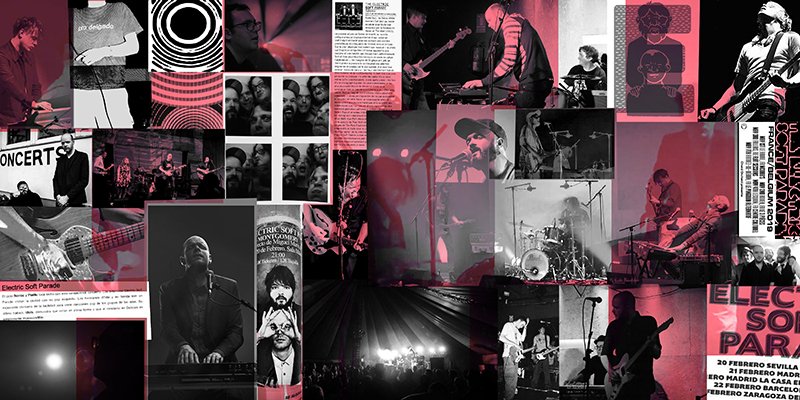
Your new album Stages is released in January – it’s your first new music in 6 years. Are you glad the record is finally seeing the light of day?
The gestation of the record was a troubled process because the album came out of probably one of the most challenging things people can go through. And certainly, if you’re a band and you are brothers. We lost our mother back in 2009 – she was ill for many years, and she finally passed away in 2009, so the record Is a direct response to that. The whole album is very tight to that event, and the time leading up to that, and the time after she died, so it’s all thematically extremely tight. It’s sincere, beautiful and sometimes it’s quite sprawling, and a bit wayward and hard to wade through.
It was essential to us that we stayed to the original plan that Al had for the record because he wrote the whole thing and sang the entire thing. I produced it and played a lot of the instruments, but he, not just once, but 2 or 3 times, has completely shelved the project and didn’t believe that anyone would connect to it. Which I don’t think for a second – if anything it’s the most human most relatable work that we’ve ever done. It’s so strong, and it’s such a universal point and such a universal subject, there is no way the people would not connect. That’s self-evident, by the way, people have responded to the songs so far. Not that people love it, but people can’t help to relate to it – it’s got something that everyone can relate to in it.
Al struggled to believe that the album could ever have legs commercially, which I understand. A lot of the time he would say, “No one is going to buy this.” Not like buy it in the sense of paying for it, but no one is going to believe in it – it’s too depressing. I kept fighting the corner for these songs. I said, “No, we’re gonna bring it back and keep it as it was, and we’re going to finish this record, and we’re going to get it out because there’s something in it that everyone can relate to – it’s so fucking powerful.”
Part of that is the rawness of that expression the pain and that place it comes from – it’s real emotional angst that the writing comes from. I guess the reason the record has the impact it does is the pairing of those three things. It’s the emotional resonance of the lyrics, then the fact that the music mirrors the drudgery of grief, like how long pain takes. That’s why the songs are all 7 minutes plus long. Because grief makes you fucking wade through that shit, it’s like walking through treacle. Some days you are wading, and it’s never-ending, and we wanted the songs to reflect that, which I think they do.
And then the 3rd aspect to it, which I thought was important, is that this shit has got to sound amazing – the production has got to be beefy and poppy. If we are going to engage people for an hour with this tough subject matter, it better fucking sound tremendous, and it better be seriously hefty – production-wise and mix-wise. We spent a long time talking about those things and getting them right – it almost doesn’t matter how it does commercially because I feel like we have made the record of our lifetime.
I agree that musically it’s very uplifting in parts, and it’s interesting to find out that was intentional.
There has always been that balance with us – that sometimes the songs can be incredibly melancholy and sad, but they will be paired with that sort of upbeat thing. It’s like a rom-com that makes you laugh for an hour and a half then makes you cry at the end, do you know what I mean? It’s a simple thing, it’s not a complicated thing, but it works. It’s very real, it’s how life feels, life is not all sadness and drudgery, and it’s not all uplifting – there is always light and shade. I’m proud to say our music has always reflected that. It’s not something we’ve worked hard at – it’s weirdly something that comes naturally.
The first song I heard from the album was new single Never Mind. On first listen it sounds uplifting, but when I dug deeper into the lyrics, I realised the song is about your mothers suffering and pain. Then there is the video which features very moving footage from a documentary about mental health and institutional care in America during the 70s. The music and images together are compelling and brought a tear to my eye. Why did you choose to combine the two?
(Laughs) You’re not the only person that said that, but I genuinely can’t answer that, because my brother wrote the whole thing. I contributed a few words writing-wise, but Al wrote the entire thing. I think Never Mind is an excellent example, because the track is pretty hooky and it’s got a pop heft to the production. I can’t describe it any other way, but it just keeps on at you, and that’s how grief feels when grief takes hold and doesn’t let up, and you don’t know when it’s going to end. The playout of the track is very important, in that it just keeps going, and keeps building, and when you think it’s done, a fucking saxophone solo turns up. We realised that by giving the songs this duration, you provide each gear change much more room to happen, so you let each musical development take it’s own time so it’s not rushed, and you can make a little cell of music repeat, and then you really feel when something is added to it.
With most music, you are slapped in the face by stuff, and it’s just all the ideas at once. We decided that this element of the durational aspect, where these songs take their time, and then each new component as it is added, has space to happen. And that I think it is an extremely simple thing, but for Alex that was integral, and part of the songwriting. I would say it’s fundamental to the songs even working emotionally. Some songs, you listen to the lyrics and that’s all you need. And some songs it’s the melody, but with these, it’s like lyric then melody, but then the fucking thing is like 13 minutes long, and you think, where am I?
But we wanted that because there are different songs on the record that depict different events around my mum dying. One of the songs called On Your Own is trying to capture in music the final disintegration of consciousness itself, that happens when a person dies – it’s a sort of unravelling of consciousness if you like. The music is so personal and intense, it’s so universal. There’s so much generosity of spirit in writing something like that, that I’m saying to ourselves, “fuck how this does commercially.” I need to explore this, and express this, and see how I feel about it. I think my brother is incredibly brave for going there. Part of my job in the project was facilitating the finishing of this record when he lost confidence with it. A lot of the time, it would be just me cheerleading for him. So I’m very very proud of him, and I know that the album will probably not be for everyone, but for people who are ready to go there and have the experience of hearing someone else’s take of it, or relating it to theirs – I think it’s an incredibly deep record.
Did you find recording the album helped with your grieving?
It’s quite telling that it’s taken us ten years to make this record since she died. I would hope that on some level, letting go of this record and releasing it is the final part of a process. But I think that there is something extremely positive you can think about, and that is when we experience grief, we don’t experience pain in isolation. Because when we encounter new pain, we experience all of our old grief wrapped up in this fresh grief. So we are reminded of past loss and past change that happened – that’s why grief is so painful because we are reminded of every other time we have lost someone or something from our lives. There is broader healing going on, in that we are not only grieving our mother and processing that grief. Hopefully, it’s a coming to terms with grief collective.
Like the concept of grief, let alone our experience of losing our mother – it’s like reckoning with the idea of grief itself, regardless of who you are talking about losing, which I think is something that people could do with. The conversation needs to keep happening because we have a very arm’s length relationship with death and grieving. Me and Al had to navigate our way through it – there was no road map. My brother calls the album a road map of grief. I am grateful I have so much respect for my brother for going out there and saying, “Right, we are going to fucking do it.” (Laughs) We will be the band who goes out and says it, and it’s taken its own beautiful shape – it’s our expression of it. If another band decided to do that, it would look completely different, and it would sound completely different. And I’m sure people have – I’m not saying we are the first, but in this day and age we have looked out there, and there is no other band going full throttle into those subjects as we have – Stages is a unique record.
I am sure people have done it in the past and put their loss into records, but right now it feels like it might be the real unique thing about the project and the record. We are daring to go there in a world that is increasingly saying MAN UP! The Tory take on how people should behave in the world is essentially like MAN UP! or SHUT UP! But no! Everyone is human – everyone is going through this stuff.
Let’s have that conversation and let’s be vulnerable. Being vulnerable Is like the bravest, strongest thing you can do on the other side of fear. What’s on the other side of fear? Nothing. It’s all in your head, yet people live in fear – it’s such a powerful thing, and I feel those conversations have to keep happening. We have to keep discussing mental health because people are suffering from addiction and trauma, abuse, and all of these things silently. They are suffering through it, and the solution is discussing it, opening up, and being heard by another person. That is the healing – that’s where the healing happens.
The first track released from the album was the ten-minute long epic Roles Reversed. Why did you choose to put that out first?
We thought it was an impressive statement musically and production-wise, and it’s the 2nd to the last song on the record, so we felt that song encapsulates what’s going on, on the record thematically. The song is about many years ago when our dad had a heart attack, and our mum was a trained nurse. She was with him, and she brought him back around. He technically died for a minute or something, and she performed CPR on him in the car park of the superstore, and it was a sweltering day. The lyrics discuss it all in detail – they tell that story. The song is about roles reversed – that role of carer was reversed on the 2 of them. Our dad became our mum’s carer laterally. When he had his heart attack, she thought she was going to lose her husband, and he was the unwell one.
It felt like an interesting cross-section of the record musically, and it was 10 minutes long. We felt if we lead the album with a 5-minute tune, it’s giving people a smooth ride. There are some long fucking songs – let’s kick off with one of the long ones because people have got to get on board with this. If they think it’s going to be a record of indie-pop stuff with 3-minute tunes, it just isn’t. We aren’t doing any radio plugging for this record – no songs are going to radio. If we get played once or twice on the Guy Garvey or Mark Riley show we will be lucky. It’s not that kind of record, and we are well aware of that. So we thought, let’s lead with something that’s not going to mislead people. (Laughs)
Stages will be getting a very limited release with just 500 CDs, and 250 vinyl to be available through the Chord Orchard shop. Also, the album will not be appearing in full on Spotify or any other streaming sites, and will only be available through Bandcamp. Will the record get a broader release in the future?
Perhaps, but everyone who comes into contact with this record must want to. We don’t want to bombard people with it, we’re not going to promote it to people that don’t want to hear it – we’re not going to try and put it in places where it doesn’t belong. It belongs in our world, so we want to invite people into that world. If they’re going to come and visit us in Bandcamp, or one of our shows, or check out our video on YouTube, that’s fine. But we do not want to be in the position where we are putting this stuff in places where it paints the material in the wrong light. We have made that mistake all our lives, and we’re frankly done doing that. My take on it is, it’s a very fragile little record, and it needs to be treated with care, and I’m going to protect this little guy as much as I can.
Spotify doesn’t deserve this record at all. We have put ten years of our hearts and souls into this record, and frankly, Spotify wouldn’t understand it, and I don’t think they should. I’m not bitching at them – this thing is our baby, and we will make records in the future where we will send it out into the world and want to connect with as many people as possible and bombard people with it, but this record is not that. It’s a very very personal record, and we just felt it was essential to us that this record reaches our fans first, and we want to keep it that way. Can you imagine one of these tunes on a playlist on Spotify? Some of the songs are near 9 minutes long – it’s just not going to happen. It saves us the humiliation of going to these people and begging them to essentially validate our music, which we don’t need for this record.
It’s quite refreshing hearing that, since you’re doing the opposite of what most bands want to do, because most groups want to get their music out to as wide an audience as possible.
I don’t want to sound like a complete dick, but that’s where creativity starts to mirror late-stage capitalism and sort of neo-liberalism, where it’s growth at any cost. And I don’t believe in that morally for corporations, so why would I apply that to my band? I feel that we have got a sustainable thing, and fair enough if it grows a little bit – that’s beautiful, and I don’t expect the band ever to be selling millions, but a little bit of growth would be lovely, and to reach a certain amount of people would be great. But our only worry is breaking even and making a bit of money, and earning a living – I have no financial designs on any kind of career beyond that.
Artistically, yes, I want to be able to achieve things and work with different people as a producer and earn a living, and do well, and succeed and inspire people. But, I have no interest in blindly promoting to anyone – this record is too special to do that to. And I think it I will be doing it a disservice to place these songs in a vulnerable place – to put them in Spotify playlists and all the rest. They’re just going to get rejected, and it would only make us feel shit. (Laughs)
Why do you think the songs would be rejected by Spotify?
Well, I know what they look for when they are putting these things together. A song that takes 2 minutes for the vocals to come through is just not going to be added to a new music playlist, so we are just saving ourselves the bother. We’re not saving ourselves the humiliation – we are saving ourselves time by not going down that avenue because I know for a fact If we don’t drastically edit these songs, they’re not going to get on radio, or Spotify, or whatever. It’s no question, we had the conversation years ago – that there will be no edits of these songs. They don’t exist – it’s the full thing or nothing. (Laughs)
The Electric Soft Parade will also release the second album, Avenue Dot in 2020. Is this a companion piece that’s from the same sessions as Stages?
It was recorded during the time we were finishing Stages, but it was written much much later. Again, it is a whole album that Al has written. It’s a sort of companion piece if you will, but it deals with different things – it’s about half an hour shorter. It has some of the repetition that happens on Stages, and lyrically it’s fucking great. Al is still on this great tip of writing from the heart and experience, and cutting through the crap and writing beautiful stuff.
Will you be touring both records in 2020?
We are touring France in May, and fingers crossed the UK later that month. France has been good to us – we go out there every year, then some dates in the UK, and then probably some dates in Spain, and then hopefully a big Brighton show at the end of 2020.
The Electric Soft Parade, ‘Stages’ is out now on CD/LP/download via Chord Orchard.
Check out XS Noize review of ‘Stages’
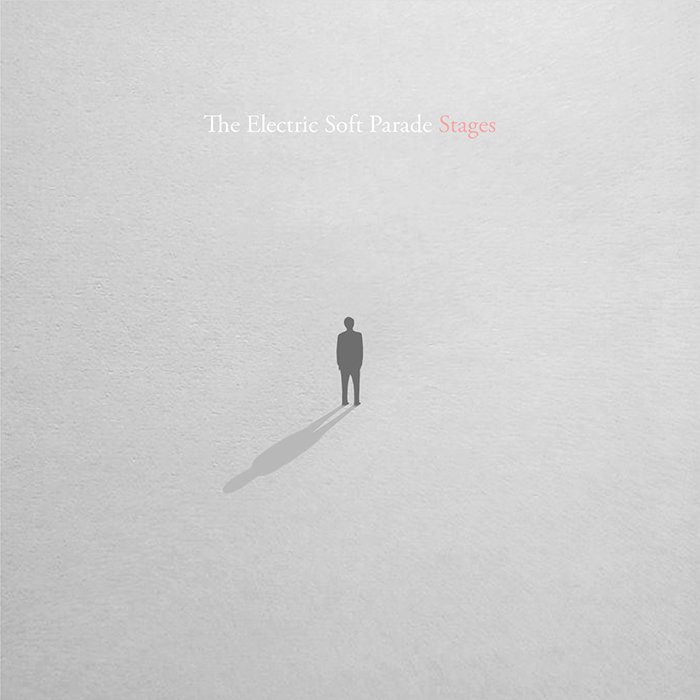
Track-listing: Stages
1. Saturday
2. Never Mind
3. The Bargain
4. Left Behind
5. On Your Own
6. Roles Reversed
7. Fragments
Live dates:
May
6th – Montpellier ROCKSTORE (w/ Le Superhomard)
7th – Arthez de Bearn LE PINGOUIN ALTERNATIF
8th – Sainte Bazeille LE 180
10th – Saint Lô AU HASARD DES RUES
11th – Paris PETIT BAIN

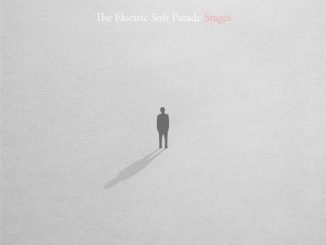
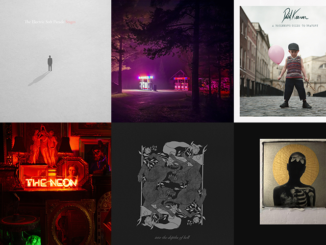

Be the first to comment